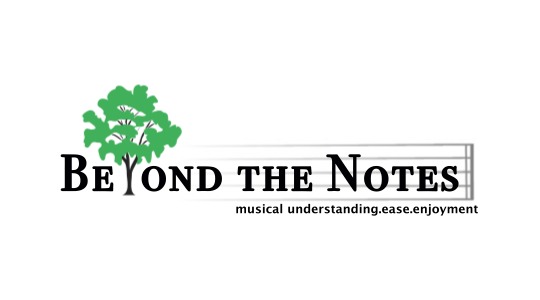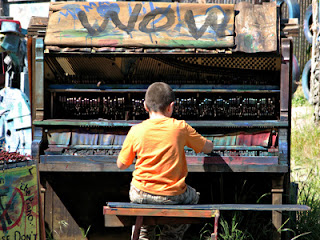 |
| © Kromosphere - Fotolia.com |
Young pianists, this post is for you!
Think piano collaborators are pianists that couldn't quite cut it in the solo world? Do you picture the demure, quiet, accompanist of long ago that silently shuffled to the piano and played in the shadows of the "real" artists?
Well think again! I'm a little biased of course, but I love doing what I do. And here's the thing - we need more young pianists that are interested in going down this path. We need for you to start doing things now that will help you acquire the skills that make for a great collaborator. Now is the time to start playing for friends that sing and play other instruments. Now is the time to sightread duets with your teacher or a friend on a regular basis to pump up your sightreading skills. Now is the time to get a taste for the fun and satisfaction that can be had in this great role.
So what's so great about it? I was hoping you'd ask. Here's what I love about being a collaborator:
- I get to perform all the time. During the school year that sometimes means several times a week.
- There are opportunities to travel all over the world as a choir's or musician's pianist. Accompanying choirs and singers has taken me to Switzerland, Asia, Russia, and the Czech Republic.
- There is great value in having to play pieces that I don't think I'm going to like. More often than not I end up liking them by the time a performance comes around. (There's a good life lesson in there - give the piece a chance, take the time to get to know it, and end up loving it.)
- I get to perform the same pieces over and over again which gives me the opportunity to keep improving. Of course it's never perfect, so I'm never bored!
- I can't easily or responsibly back out of a project when I discover a piece is more difficult than I thought it was going to be. I have no choice but to make it work and usually it ends up being all right. That leaves me with a very good feeling and raises my opinion of what I think I can handle. Sometimes this is scary, but it's also exciting and empowering.
- I get to play and work with others. That might not be everybody's cup of tea but I love the interaction and the communication that can happen between two musicians, with or without words.
- Sitting in other peoples' lessons opens up so many more worlds. I've learned so much about the various instruments and what it takes to play them. It's a an education that you are paid to receive. (There's more about this in my post, "The value and fun in being a sponge-like collaborator.")
- I get to perform without the stress of having to deal with memorization, which doesn't happen to be my strong-suit.
- I still play solo piano music when I want to and when I'm asked. With all the playing I do I am always in good shape technically.
- I play music that is just as wonderful and demanding as solo piano music. Sure there's the easy music too that I can do in my sleep but there's plenty of challenging music as well that would give a solo pianist a run for his or her money.
- I get to work with young musicians on a regular basis without bearing the responsibility of being a primary teacher.
- I don't think I'll ever run out of music to learn.
- I can work as a freelance pianist or I can try to get a job as part of an institution or organization.
- Collaborating allows for some moments to swoop in and be the heroine for the day. We have to be careful how much we do this because saving the day too often can sometimes lead to being taken advantage of and to some uncomfortable situations. But most of the time I find it pretty thrilling and satisfying to know that I've saved what could have been a not-so-pleasant performance.
- I love the opportunity to work with young people. I figure it's my chance to keep music flowing in this crazy, wired world of ours.
- Every once in a blue moon I get to play for a masterclass that's truly for a master. And in those classes I sometimes get to accompany them as they're demonstrating. Even if it's only for a handful of measures there's something pretty thrilling about playing with someone that seasoned and talented. I'm not one for getting autographs but I'll take a musical autograph any day.
I'm sure I'm leaving things out in this list. If any fellow collaborators want to chime in with some others, please feel free to leave them in the comments section.
The world needs more good, dedicated piano collaborators so sleep on this list and wake up ready to grab another musician with whom you can play. If you're like me you'll never look back. And if you need any more convincing, check out the sidebar on the right-hand side of the blog that says, "Blog posts about accompanying/collaborating." I have had plenty to say about the topic.
Now get to it! Start thinking outside the box, grab a partner, and play!
Tweet


